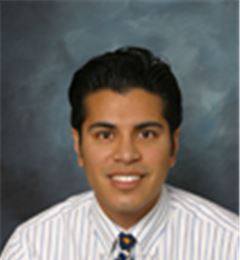
Orange County, California, 16th November 2022, ZEXPRWIRE, Medical studies are rigorous and stressful, and 16% of enrolled students drop out. Becoming a physician is highly esteemed and lucrative, but it requires hard work and dedication to get through the entire program. In a recent webinar, Dr. Bindra, a renowned private practice pediatrician, shared his insights on how medical students and residency trainees can study effectively and achieve their goals. He noted that students could prevent burnout and become better doctors with the right studying methods.
Dr. Bindra noted that using music as a stress reducer was one of his most effective methods during medical school and residency. This is backed by numerous studies showing that music can help lower stress, including school-related stress. With a clear mind, students can easily grasp what they learn. Music also helps students process emotions, strengthen their resolve and provides an uplifting effect that can help them accept, manage and deal better with mental health issues like exam anxiety.
Another technique that Dr. Bindra emphasized is game playing. Dr. Bindra advised that games are a great way to improve study results because they help enhance memory. As a lover of games himself, Dr. Bindra created a quiz show during his residency using the Jeopardy game show format. It was a short 20-minute game that helped other residents and students easily grasp difficult concepts.
After Dr. Bindra graduated from residency, the chief resident asked him to come back and to perform this game show for all the residents at their noon conference.
Dr. Bindra expanded upon the Jeopardy format game and he presented this on a regular basis, helping residents prepare for and pass the medical board examination. With this game, he could help the CHOC residents and make a presentation to his colleagues. The game was similar to Jeopardy, but with questions that were likely to appear on the Pediatric Board exam.
To make it more fun, Dr. Bindra created some unique categories over time. They included a category called “Smush” that he adapted from another television game show. In this category, Dr. Bindra offered the residents two clues that would have a word or syllable in common. One clue was a pop culture reference, and the other was a medical condition. The residents needed to know the answer to both clues and then needed to combine/smush the clues together. Here is an example from one of the games:
Clue 1: This writer/poet penned “The Raven,”
Clue 2: The Congenital unilateral absence of the anterior ribs, muscle, and soft tissues.
The response to the first part: Edgar Allan Poe, and the second part: Poland’s syndrome. The correct answer is Edgar Allan “Poeland’s” syndrome.
Dr. Roger Bindra also emphasized the need to stay organized and have a study plan. Medical school involves a lot of information, and it can be easy to get overwhelmed. Taking the time to get organized will set you up nicely and help you achieve your learning goals. To get more organized, Dr. Bindra advised students to invest in organizational apps and use them to keep track of current assignments and deadlines. He also suggested bringing all the materials and devices they need to class for them to participate fully in class. He added that students could stay on top of their studies and succeed with a good study plan. Most importantly, he advised students to break up their study sessions over days instead of trying to study everything in one sitting and to avoid last-minute “cramming” for exams. He further added that a proactive approach would also help clear out any uncertainties and help students get any extra help they may need.
Dr. Bindra is a well-respected private practice pediatrician with decades of experience in the field. He is well educated and holds a degree in Biochemistry from U.C. Davis, where he graduated with the highest honors and earned membership in the Phi Kappa Phi Honor Society. He was a 1994 graduate of the UC Davis School of Medicine and completed his residency training at Children’s Hospital of Orange County in 1997. He received his initial board certification in 1997. He has served as a regular lecturer for the CHOC residency program. He has been a member of the organizing committee for the Orange County American Lung Association’s annual asthma camp for many years. He has extensive experience in asthma and allergy and enjoys performing magic tricks for his patients. He believes that all children have different needs and prioritizes partnering with patients and their families to provide the best care and service. Given his experience in medical school and residency, his expertise in effective studying will go a long way in keeping children safe. Dr. Bindra has received many awards based on his accomplishments, including the Castle Connolly Top Doctors award 2012-2016, the Patient’s Choice award, and the Compassionate Doctor Recognition Award.
Media Contact
Company Name:-PSJH Med Group
Email:-[email protected]
Company Website:-https://www.psjhmedgroups.org
The Post Dr. Roger Bindra, a Pediatrician, Offers Tips on How Residency Trainees and Medical Students Can Study Effectively appeared first on ZEX PR WIRE
Information contained on this page is provided by an independent third-party content provider. Binary News Network and this Site make no warranties or representations in connection therewith. If you are affiliated with this page and would like it removed please contact [email protected]



